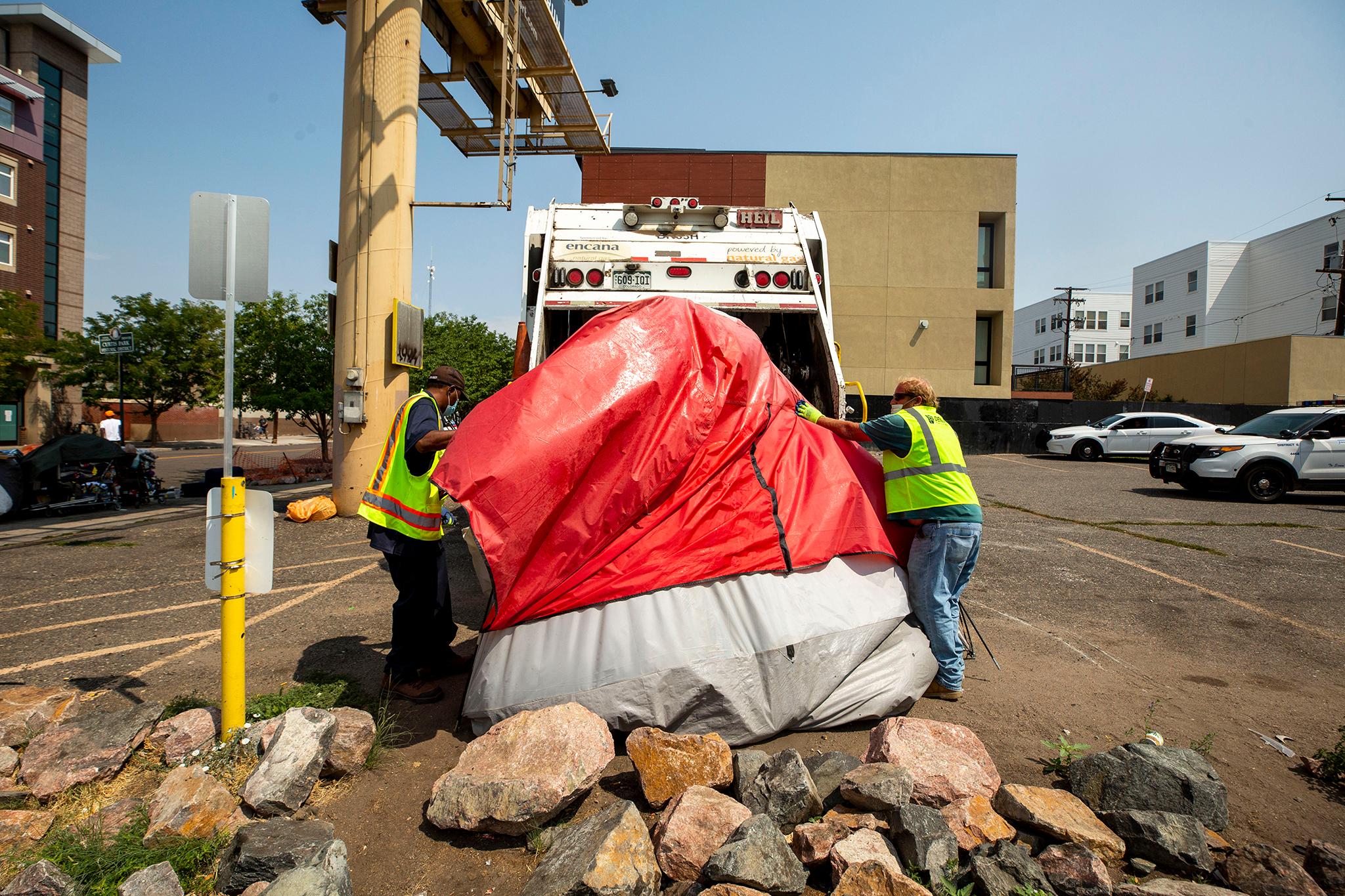UPDATE: On Jan. 26, the city government filed an emergency appeal to block the judge's order.
"If Denver is prohibited from making decisions related to encampments when significant public health, environmental, and/or safety risks are found--especially during the COVID-19 pandemic--all Denver's residents, including people experiencing homelessness, could be placed at grave risk of significant and irreparable harm," the appeal states.
The city government filed the motion in the U.S. 10th Circuit Court of Appeals.
City officials must now give a week's notice before sweeping most encampments of people experiencing homelessness, and a two-day warning prior to any sweep of a camp they deem dangerous to public health.
Judge William Martinez gave the order Monday. The injunction came after a preliminary hearing for a class-action lawsuit, filed in the U.S. District Court of Colorado against the city by Denver Homeless Outloud and others, aimed at ending the cleanups, as the city calls them, altogether.
Martinez's order also stated that city officials failed to give ample notice of sweeps last year because the government wanted to avoid "the possibility of additional (and vociferous) public scrutiny" from people exercising their First Amendment rights. In other words, city government workers removed tents and other belongings and told people to move along because they were concerned about protests.
The seven-day warning applies to most camps, while the two-day warning applies to emergency situations -- camps that the government deems dangerous to public health. Denver's public health department must document its reasoning in those situations. Martinez ruled that in addition to posting written notices at campsites before any sweep, the city must email attorneys for Denver Homeless Outloud and the city councilmember who represents the district where the sweep will take place.
"The Denver defendants have not come close to demonstrating that a requirement of at least seven days' notice before an encampment sweep will preclude it from fulfilling its duty to protect the public health and safety," Martinez wrote.
Still, the judge characterized his decision as "the narrowest injunction possible" in an attempt to preserve people's rights as well as public health. And Martinez questioned whether Denver Homeless Outloud and its allies would be able to prove that the sweeps endanger the health of people experiencing homelessness -- a key point in their quest to outlaw them -- once a trial begins.
Mayor Michael Hancock, who supports the city's urban camping ban, said in a prepared statement that the ruling "dangerously ties the hands of city officials and prevents us from acting swiftly in the case of a public health or safety emergency or significant environmental impacts, which we unfortunately see with some frequency in large encampments."
The city government will look to appeal, he said.













